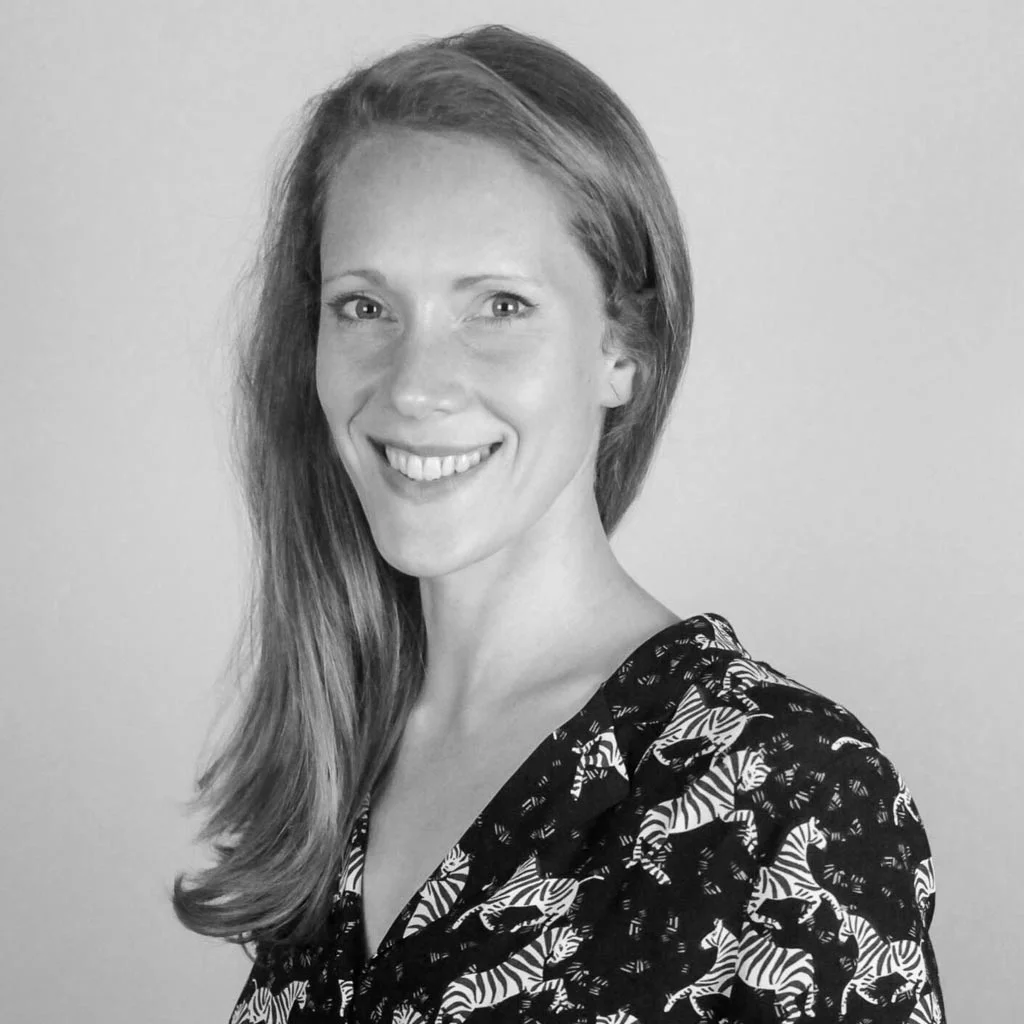Elisabeth Fosslien On The Secret Power Of Embracing Emotion At Work
Liz Fosslien is the co-author and illustrator of No Hard Feelings: The Secret Power of Embracing Emotion at Work.
She has designed and facilitated organisational culture workshops for leaders at Google, Facebook, Nike, and Stanford, and her data visualisation and writing projects have appeared in CNN, NPR, The Financial Times, and The Economist.
Liz shares insights into dealing with emotions in a professional setting, and discusses empathy, leadership and creating healthy and productive workplace cultures.
Highlights from the interview (listen to the podcast for full details)
[Tom Allen] - Could you please share a bit about your background and what led you to working with businesses to build cultures of belonging?
[Elisabeth Fosslien] - I studied economics, and then was an economic consultant, and after that moved into tech. Then most recently, for the past three years, I worked with a small organisation called Parliament and it was a learning and doing community where Fortune 500 executives could convene and discuss issues that they were all facing.
My job there was to really figure out how to convene them, how to organise workshops, conferences, and then how to facilitate those experiences, both so that people would learn from each other and also to make sure that these were very human interactions.
I think so much of our experiences, when we see the words ‘business’ and ‘conference’, we immediately jump to this idea of networking and that we should be professionals. But I think the best insights really come out when you're interacting on a more human level.
What's a couple of tips that you think people generally get wrong when they don't interact as emotional humans?
I think that it prevents you from really bringing all of your experience to the table. I think if you both present as, and then see others as a full human, (as opposed to just a title or just their affiliation), again, it allows you to bring everything that makes you unique, all of your experiences, all of your insights, rather than pigeonholing yourself into one industry even.
I think what's so wonderful about having many different people in a room is that they come from such diverse backgrounds and you don't want them to only speak to one part of that experience, to only focus on something they've done in one job, because there's usually a lot to learn from everything they've done in their career.
You recently co-authored No Hard Feelings alongside Mollie West Duffy. I'd love to hear a little bit more about this book, Liz. Why did you write it and what were the key lessons that you learned along the way?
I wrote it with Mollie. We had similar experiences where early on in our careers we believed, as I think many people still do, that you should check your feelings at the door when you enter an office, and that to be professional, and to be successful, you just should not show any feelings, and that emotion is the opposite of rationality, which is very prized in the workplace.
And so, early in my career, my first job, I was very stressed. It was long hours and a high stress work environment. And because I was so focused on just suppressing that, I know that at one point, after a few years, I had just burnt out. So that caused this really intense period of reflection on my part, of looking both at the job and the work that I was doing, and thinking why was this not so profoundly meaningful to me.
Then also on the flip side, looking back and saying, "Obviously, I was not managing any of my own emotional state and not taking care of my emotional health," so what could I have been doing on my end to ensure that this anxiety didn't consume me and start to manifest as physical pain? I was getting headaches, I was getting sick quite a bit.
Mollie had a similar experience, so then together we started researching this idea of how do you think about your emotions, how do you acknowledge them and then really hold them up to the light and really examine what they're trying to tell you? There are emotions that are just noise, so how do you filter out what's noise and what's a valuable, important emotion that you should be listening to?
The more we researched, the more we realised that this notion that you can be emotionless in the workplace is biologically impossible. We are emotional creatures, regardless of circumstance. So, given that, it's really time that we start to learn to deal with emotions in a professional setting.
The book is intended to be a fun and affectionate, but deeply researched guide to what to do with emotion in a workplace, keeping in mind that it is a different context than your personal life, so there still are rules and boundaries. But how can we just infuse everything we do with a little more human element?
What's one of the biggest problems that you see individuals facing in these modern day work places? And what advice would you give to these people to turn those problems into opportunities?
I think a big one is, especially when you're talking about organisational culture, and how it feels to work in a place, or how it feels to be part of a team, I think most people in organisations have a manager, and so, often, I think people feel powerless to effect their environment, powerless to really make a big change.
But one of the things that we talk about in the book, is we say that, ‘emotional culture cascades from you.’ What that means, is there are really small things that you can start doing immediately, that have a really big impact on how you feel at work, and also how people around you feel at work.
A great example of this is just to positively reinforce. Let's say you're in a meeting. Positively reinforce someone asking a question or taking a risk. It's really crucial to engagement and to having everyone feel a sense of belonging at work, that they feel like they can throw out ideas. And it's also crucial to innovation.
If people aren't comfortable flagging problems, they aren't comfortable throwing out ideas during a brainstorm and you're not going get the best possible product at the end.
If someone does say, "Here's something that I think might go wrong with the proposal," just to take five seconds and say, "I'm really glad you brought that up, it's so important that we flag these things." And that orally establishes a norm of, "We value this kind of behaviour," and once you start modelling that, usually you're helping other people do it, and then, as they become more comfortable, you become more comfortable, and so it's this positive reinforcement cycle that can have a powerful effect on culture. And their real sense of belonging within an organisation.
That positive reinforcement is super important. Are there any other things that you believe business leaders should be doing more of in their workplaces to create these optimal work environments?
When it comes to leadership, one thing is we encourage leaders to show some level of emotion.
To really shed this idea that you should be an emotionless, rational robot, I think it's just a false dichotomy that reason and emotion are opposites. That said, you can't destabilise your staff by being overly emotional as a leader. We really encourage people to display selective vulnerability.
Say that an organisation is going through a round of layoffs. If, as a leader, you show no emotion about it, people are going see you either as a sociopath or just as a liar who they can't trust anymore, because you're not speaking at all to this emotional effect that layoffs must be having on you. We advise people in that situation to say something like, "This is a tough time for everyone. It's affecting me, too. But ..." And then, after that, give the most realistic but positive picture, and provide people with a path forward.
Again, it's speaking to the emotion without getting emotional, and then providing a path forward, like how are you going to solve the problem. Again, in the layoffs example, it would be, "Tough time, it's affecting me, too, but here are the things that I am doing as your leader to ensure that this doesn't happen again. Here's what the organisation is doing. Here's what we need from you. And I really believe that we can make this happen."
So you're not leaving people feeling isolated in their emotional states, but you're still instilling them with a sense of hope and also giving them a clear directive, and therefore reinforcing, in their eyes, your ability to lead.
A lot of our listeners are early stage social entrepreneurs, or they're beginning startups, so do you have any advice for them and is there anything you believe that they can do to best select co-founders or team members?
In choosing a co-founder, I think one of the most important pieces is find someone who is willing to discuss feelings with you, and who is very open to feedback, and who is willing to give you useful feedback. I think there's so much you can do at the very outset of a business relationship, or a project, or founding a company, that can reduce miscommunication in the future.
I think this would be such a great thing to do with a co-founder if you're just getting into the craziness, because once work picks up, it can be really hard to carve out that time to say, "Hey, we need to sit down and have a two hour discussion about our feelings." But it's super useful at the beginning to sit down and then answer 10 questions.
And those questions should be along the lines of, "How do I prefer to get feedback? What's something that you might misunderstand about me? What's something that has come up in the past that people misunderstood about me? How do we want to communicate? Do we like to communicate over email? Do we like to communicate on the phone? Do we want video conference? And then, is there some kind of standing arrangement we can have, where we take the time to just address and check in on how each other is feeling?"
There's a strong alignment of expectation from the beginning, right?
Definitely. One thing, too, that Mollie and I did while we were writing the book that might be fun, (especially for founders who are often analytical or like spreadsheets), is we created this big Google spreadsheet and we had 10 statements that we listed.
One was, "I feel good about my contribution." Another was, "I feel good about the other person's contribution." We had, "I feel good about the book's direction." And then every two weeks, on a scale of zero to 10, (10 being the highest), we would each fill in how we felt about each of those statements. And then we would also fill in how we felt the other person felt about the statement.
If I felt Mollie was feeling really good about the book's direction, I would put a 10 in that column. And then we would swap. And what that did, is it would highlight if I thought Mollie was feeling a 10, but Mollie had entered four, there was a big gap and we needed to talk about it.
Finding ways to explicitly bring to the forefront any issues, so that you can resolve them in that moment, as opposed to letting them fester, (and then maybe breed resentment), and then you start to read every email through a negative lens. It's just really important to whatever feels right to you. Mollie and I both love spreadsheets, so that worked out really well for us. But whatever feels right, to try to schedule in some time at regular intervals to talk about these things.
Are there any inspiring projects or initiatives that you've come across recently, which you believe create some excellent positive social change?
Two things come to mind, and again, I'm going speak in the context of creating better work environments and just making work better for employees.
One is at LinkedIn a few years ago, Pat Waters, who at the time was the head of HR there, she introduced an annual employee engagement survey, and she introduced four questions about belonging. And two of those questions actually ended up being leading indicators of how happy an employee was in their job, and whether they would stay or not.
And those two questions were, "If something bad happens at work, do you feel safe? Do you feel like your team will still support you, they're not going to ostracise you?" And then the second question was, "Does someone at work care about you?" They were just two questions, and if you know the answer to them, I think it gives you so much insight into someone's state at work and how they feel. I think, again, another thing I love about that, is it's really trying to measure and quantify belonging.
So often people think about emotions, and it's so hard to start figuring out how to measure them, so any examples of them being measured I'm really excited about.
Then quickly, another example is, there's a company called Humu, and it was Laszlo Bock who led HR and led their people analytics team at Google for 10 years. He left about a year and a half ago to start this new company, and they're trying to do something similar, which is introduce nudges into the workplace. The idea there is, there's these small changes you can make that have a really big difference. And so, they're helping employees learn what those small changes might be, to help them attain their goals.
Again, it's this idea that you can measure these things and then you can take small steps to have a huge impact within an organisation.
Fantastic. As an author yourself, then, Liz, could you please recommend a few great books to our listeners?
I really love Laszlo Bock, who founded this company, Humu. He wrote a book called Work Rules that I highly recommend. He talks about his time at Google and a lot of the learnings there. Again, it's also around how to measure, how to quantify feelings, and then what to do with that data.
I also love Radical Candour by Kim Scott. I think it's an excellent take on how to give critical feedback in a way that really helps the person and keeps their feelings in mind. One of the things she says is that, "Your comment is not measured at your mouth, it's measured at the other person's ear."
It's really important to treat people, not how you want to be treated, but how they want to be treated.
Just finding out, does someone prefer to receive feedback verbally or over email? That can make a really big difference, and understanding their preferences helps you. With the best intentions, we can still bulldoze over other people's feelings, so I love that push to really try and understand the people around you, how to best communicate with them.
Those are two books that I think should be on everyone's shelves.
Recommended books
Work Rules by Laszlo Bock
Radical Candour by Kim Scott







